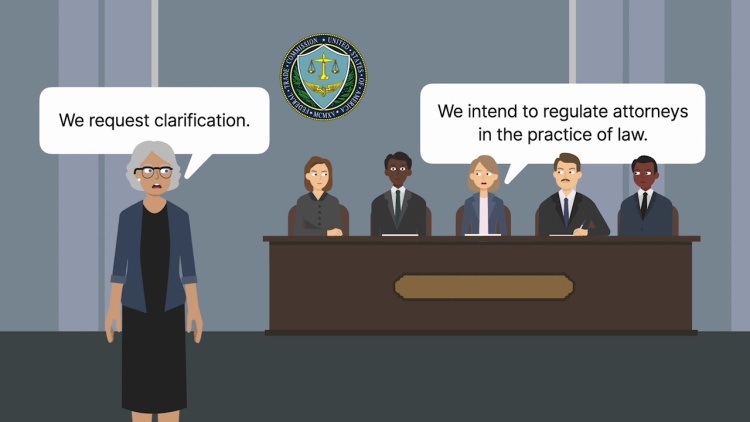American Bar Association v. Federal Trade Commission
United States Court of Appeals for the District of Columbia Circuit
368 U.S.App.D.C. 368, 430 F.3d 457 (2005)
- Written by Kathryn Lohmeyer, JD
Facts
The Gramm-Leach-Bliley Financial Modernization Act (GLBA), 15 U.S.C. § 6801 et seq., created privacy protections that required financial institutions to keep their customers’ information confidential. The GLBA authorized the Federal Trade Commission (FTC) (defendant) and other federal agencies to promulgate implementing regulations. The GLBA’s definition of financial institutions referenced a list of financial activities contained in the Bank Holding Company Act of 1965 (BHCA), 12 U.S.C. § 1843(k). The BHCA list incorporated a long list of nonbanking activities identified as closely related to banking by a Federal Reserve Board regulation (Regulation Y), 12 C.F.R. § 225.28, including providing services related to real-estate transactions and preparing taxes. Although neither the GLBA nor the FTC’s implementing regulations mentioned regulating the practice of law, attorneys became concerned that the FTC intended to regulate their field. The American Bar Association (ABA) (plaintiff) sent a letter to the FTC questioning the propriety of the FTC’s apparent intention to regulate the practice of law. The FTC rejected the ABA’s request to be exempted from regulation and identified the GLBA as the source of the FTC’s claimed power to regulate attorneys. The ABA brought an action against the FTC in federal district court, seeking a judicial determination that the FTC lacked statutory authority to regulate the practice of law. The district court granted summary judgment to the ABA. The FTC appealed, arguing that any institution engaged in financial activity as defined in the BHCA was a financial institution subject to the GLBA.
Rule of Law
Issue
Holding and Reasoning (Sentelle, J.)
What to do next…
Here's why 907,000 law students have relied on our case briefs:
- Written by law professors and practitioners, not other law students. 47,100 briefs, keyed to 996 casebooks. Top-notch customer support.
- The right amount of information, includes the facts, issues, rule of law, holding and reasoning, and any concurrences and dissents.
- Access in your classes, works on your mobile and tablet. Massive library of related video lessons and high quality multiple-choice questions.
- Easy to use, uniform format for every case brief. Written in plain English, not in legalese. Our briefs summarize and simplify; they don’t just repeat the court’s language.





